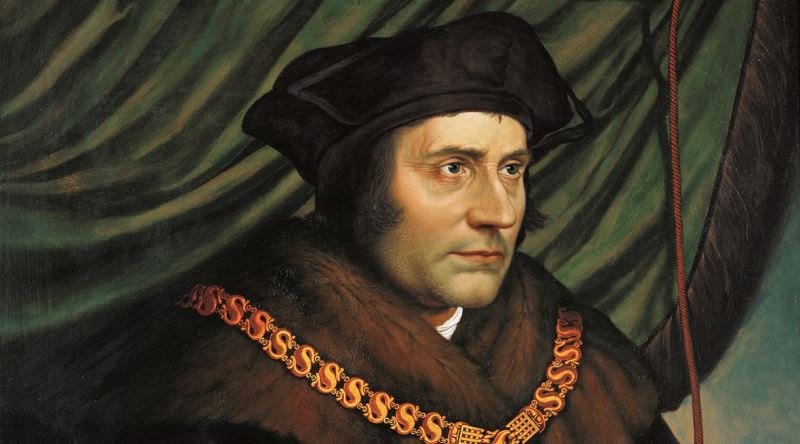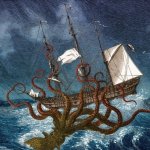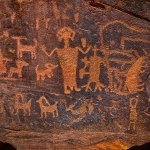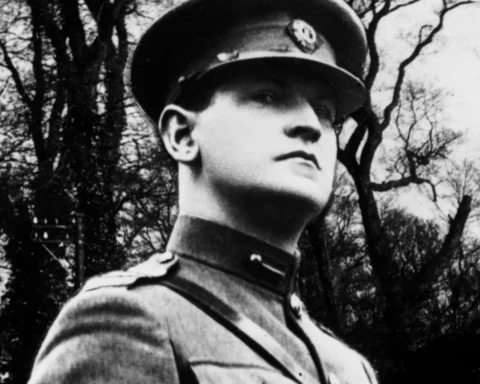…may it please God that I do return safe home again into my country, to give perfect instructions on those admirable devices, and past all credit of possibility, which I light upon, may be imparted unto public use.
You shall then see men fly from place to place in the air; you shal be able to send messages in an instant many miles off, and receive answer again immediately; you shall be able to declare your mind presently unto your friend…
Well, when we think the 16th and 17th centuries, there is no doubt that it was related to be a period of discovery and exploration. Remember Christopher Colombus, Galileo Galilei, Nicolaus Copernicus and Sir Isaac Newton. But besides them, what makes a man so special was his written piece ,(the man in the moone). Francis Godwyn (1562-1633), indeed.

The story begins with a Spanish merchant, Domingo Gonsales, who had to leave the country after he killed a man in a duel. (God knows I have even tweeted about it, which was quite funny.) Later on, Godwin’s hero makes an enormous fortune in the East Indies and decides to return to Spain.
However, he fails because of an illness. Well, the actual story begins here, though. He now discovers the “gansa” (wild swans), which it is kinda bird. After a couple of failed attempts to stay on the terrestrial globe, the birds fly higher to the Moon. Here it comes the most quirky fact.
Our protagonist discovers that the citizens of the Moon are CHRISTIANS who live in a Utopian paradise. (I’m terribly sorry, but this sounds a bit bizarre, right?) Anyhow, after almost six months, he becomes homesick (obviously) and he decides to go back to a place called China.
Most unfortunate, the local people of China accuse him as a magician. Yet, language simply saves his arse. After the language solves the problem, he meets with a group of missionaries who regulate the written account of his adventures and go back to Spain altogether.
Well, our author, Godwin I mean, was a bishop and he described an extraterrestrial journey to the Moon. Then, he met with the lunar variations. As I said earlier, we dont exactly know the publisher of the book. As, it started to be identified as a production of “a late clergy and knowledgeable man”, Francis Godwyn.

Godwin mentions only one astronomer named Niccolaus Copernicus (I do wanna believe that everybody is familiar with him.) in the novel, which this brings me to a series of publications in the late 1630s such as, John Wilkins, The Discovery of a World in the Moone etc. So these works as translations, entertainments and disputations came along with the geographical discoveries of the age of Colombus and the heliocentric discourse of the Copernican revolution. (Which I am not good at geography, not at all. But I am into for science-fiction, though.)
Anyway, there are also some refined and processed notions of the observations of Copernicus, one of the most popular ones is Galileo, I suppose, as a canonical figure of the new astronomy.
When we look at the history of science-fiction in Literature, I think, mentioning about some ingenious works such as Thomas More’s Utopia and Bacon’s New Atlantis (one of my fav) would be fitted. But also, these are more likely creating a substantial world to explain their perspectives. Especially, More’s Utopia. He literally criticizes his current society and describes the possible perfect one.
One of the interesting fact relating to More’s Utopia is the fact that there is none people in the novel, even though he describes Utopians throughout the whole novel. I do remember how much we shocked when we heard it from one of our professors. (Ironically, we all read the whole bloody hundreds pages. And I do not know how we did not realize it. Such a shame!) Anyway, anyway, let’s get back to the science-fiction.

What was I saying? Oh, yes, the lunar variations. They do affect the daily life, calendars and day and night thingy. In short, everything. Back in the time, it even made things easier. (e.g. planting of crops). ((Why do we always have to mention crops somehow for God’s sake?)).
Nonetheless, these effects, with the rising of the terms called astronomy, cosmology, lunar and space-travel, they were immediately associated with Christianity. (Of course it bloody did.) And, some kinda questions emerged like ‘Did they suffer from the seed of Adam?’ (WHAT?), ‘If there are any inhabitants in sphere, are they living perfectly?’ (No doubt it.) or ‘Did they have even Christ or what else?’
Oh, maybe they did have some like an alienesque Christ. Who knows? At least, I don’t. Anyhow, of course, for God’s sake, it had some effects in the literature. Christianity was about to be broken by the Reformation and with the new findings and theories of the new astronomy.
So, in a sense all these caused some disputes and controversial ideas, which we see such examples in the category of science-fiction throughout the history of literature.
The Man in the Moone, that caused such controversial issues, was printed across Europe, in multiple languages. Yet, what is more important here is that the novel might have inspired Margaret Cavendish. She is a brilliant writer, no doubt that. She fictionalized her own, unique scientific theories in the novel named The Blazing World (1666).
I may also mention it in the following writings. Why not, though? It was such an inspiring literary piece, especially, when we think it was written by an ingenious woman. Besides, there is also no doubt that it influenced Aphra Behn and her The Emperor of The Moon (1687). Of course, it also paved the way for later literary works of science-fictions and extraordinary travel fictions. Think about Jonathan Swift’s Gulliver’s Travel (1726) and many more.
Well, Godwin somehow helped such canonical authors in terms of science-fiction. But let’s admit that the idea of going to the Moon with the help of some kinda wild swans is beyond the imagination and utopic, as well. People tend to believe fictional stories in the earlier centuries. However, Godwin’s story took this possibility of believing to the other dimension. The Flat Earth Theory would be much more sensible for many people in those times.
God bless Godwyn’s poor soul…











